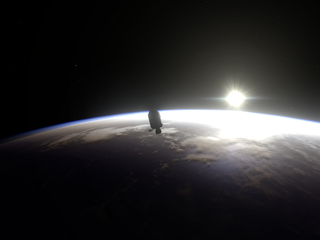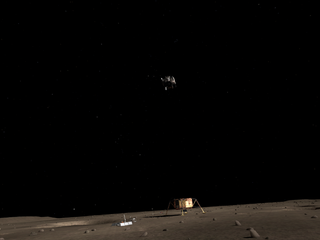Apollo 11 VR Experience To Be Launch Title For Rift, HTC Vive, And PSVR, Gear VR May Come Later

Immersive Education, the company behind the Kickstarter-funded Apollo 11 VR experience, posted a huge update on the campaign page today. Among the many things the team discussed was the confirmation that the experience will launch on HTC Vive, Oculus Rift, and Playstation VR. The company said it is “working very hard to ensure that we hit the submission deadlines and quality checks for each platform.”
Immersive Education said it is frequently asked about support for Gear VR, and it is focusing all of its resources on the three premium platforms, to create “best possible experience we can without hitting hardware limitations”. Immersive Education has not yet looked at porting to the Gear VR platform, but that will be considered after Apollo 11 VR is released. There will also be a 360-degree video of the mission released for free in the near future. The company said a version will be prepared for Rift DK2 owners, as well.

The company will be offering the educational experience at no charge to schools and colleges around the world. The team building Apollo 11 VR hopes that experiencing it will set “them on the path to becoming astronauts, engineers and scientists.” Immersive Education said the academic experience will differ somewhat from the retail version that will be available for home. The differences will be detailed after the retail version is released.
Immersive Education said the Apollo 11 experience is nearly complete, with developers focusing on refinements, rather than the core experience. The company said it made the switch from gamma corrected lighting, which is meant for viewing on a monitor, to linear lighting, which Immersive Education said “gives a cleaner view of the darkest parts of an environment, [and] it also improves the clarity of the scene when lens distortion happens.”

The update on the Kickstarter page also revealed that Immersive Education has been using the Perception Neuron motion capture system (the same one that Cloudhead games used for it’s in-game mocap solution.) Nick Pittom, the project’s animator, provided a video demonstration of what the process looks like, and how the animation turned out on the modeled spacesuits.
The update also talked about the system used to model the astronauts. The Apollo 11 VR team employed Infinite Realities to create a 50 camera Photogrammetry rig that is “synced to a spherical global illumination system called the GI-LITE.” Using this setup, Infinite Realities can “capture cross and non-polarized albedo skin texture data to build the RAW scan, which we augment with photometric normals to emboss on the scan data to provide accurate bump information.”



If that doesn’t make sense to you, just take a look at the images, and you’ll see the net results. Infinite Realities said the scanning process requires less than a full second to complete.
Stay on the Cutting Edge
Join the experts who read Tom's Hardware for the inside track on enthusiast PC tech news — and have for over 25 years. We'll send breaking news and in-depth reviews of CPUs, GPUs, AI, maker hardware and more straight to your inbox.
Immersive Education said that Kickstarter backers will be able to choose which platform they would like their copy of the game for. The company said an email will go out to backers about the selection closer to the launch of the Oculus Rift. In the meantime, DK2 owners can try out a demo of Apollo 11 VR, available from the Immersive Education website.
Follow Kevin Carbotte @pumcypuhoy. Follow us on Facebook, Google+, RSS, Twitter and YouTube
Kevin Carbotte is a contributing writer for Tom's Hardware who primarily covers VR and AR hardware. He has been writing for us for more than four years.
-
wifiburger well that's something, more nasa cgi, this time on your VR headset instead of cable tv lolReply
Most Popular





